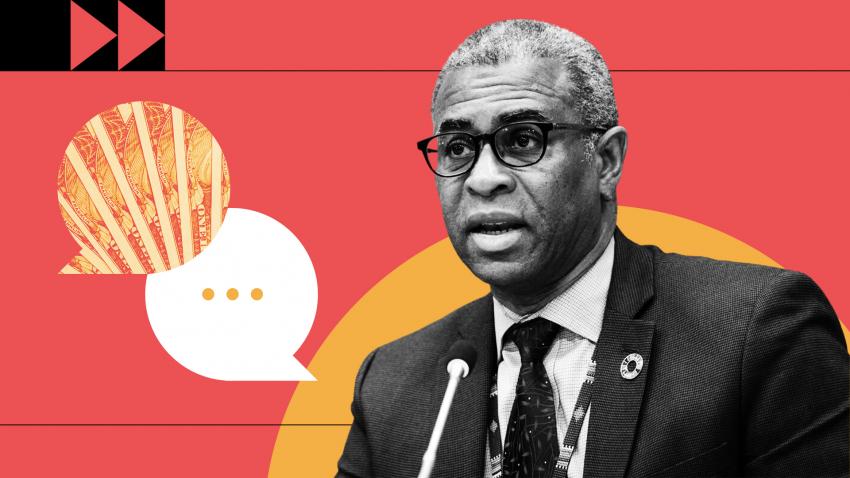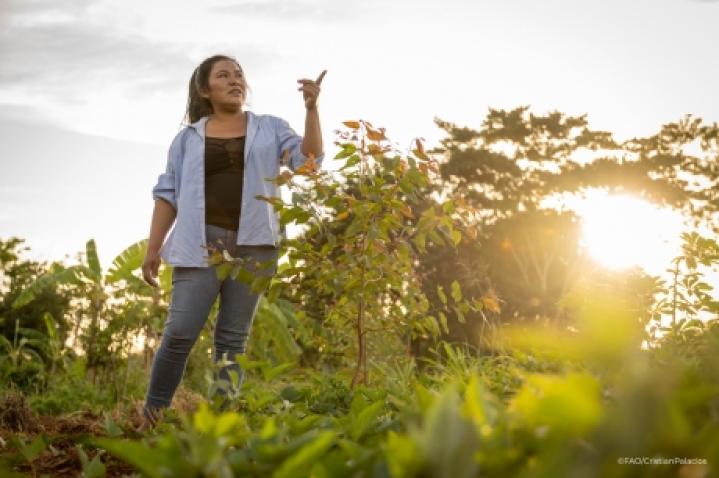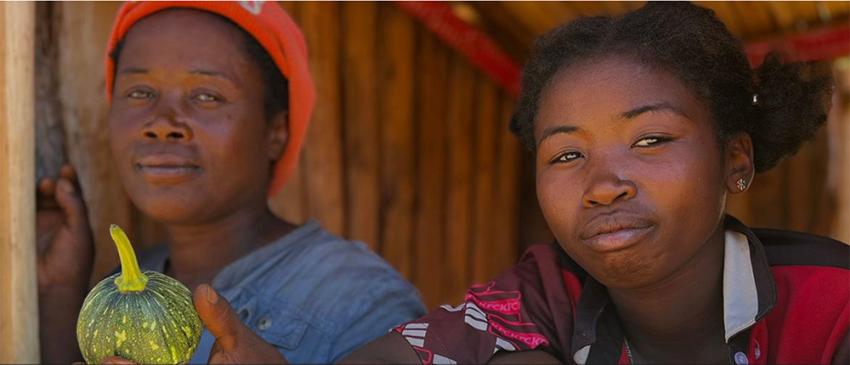Elliott Harris is the Chief Economist of the United Nations. In a recent interview, he spoke about a ground-breaking change to national accounting that, for the first time, includes valuing nature in addition to more conventional economic measures. The System of Environmental-Economic Accounting – Ecosystem Accounting offers major scope for informing and improving decisions on economies, climate action and the protection of biodiversity. Edited excerpts from the interview follow.
Why put a value on nature?
If we put a value on nature, then we will measure it. If we measure it, we can manage it. If we manage the value, we avoid destroying it. That is the problem we’ve suffered from for a hundred years. Since we did not take that value into account, we’ve treated nature as though it was free and limitless. We’ve been using it up without being aware of how much value we were losing.
We have always measured economic progress in terms of the goods and services we produce and consume. That is gross domestic product or GDP. We never did that for nature. But nature provides services that have value, and we need to account for that value in measuring our economic progress.
Accounting for both nature and the economy allows us to see how our economic activity affects nature, how the presence of nature affects us as a society and as a species, and how our activities could be changed so that we can achieve prosperity without damaging or destroying nature in the process.
Why now?
The consequences of ignoring nature are becoming more and more evident. We see the rising frequency of climate-related disasters. Weather changes are affecting agricultural productivity. Zoonotic diseases like COVID-19 are starting to affect us more and more.
We have a rapidly closing window of opportunity to fix these problems. If we can better understand the scope of them, and how much damage we are doing, we can act now in a considered and rational way. If we wait until we are at the brink of catastrophe, we will be forced to adjust in a very rapid and painful manner.

What does accounting for nature look like in practice? What does it measure?
Everyone looks at a forest and understands that if we cut the trees down we can sell the timber and that has a value. But we also think of a forest as a place where we might like to take a walk or go camping. And that has a value, though we can’t put a market price on it.
A healthy forest also produces all sorts of other services. It helps to regulate the climate and the hydrological cycle. It absorbs water from rainfall and prevents soil erosion. It filters water. We benefit from all of these services. We don’t see them. We don’t measure them now. But they are very important. And when that forest is cut down for timber, we lose those services.
If we measure these services, we can make better judgments about whether it is a good thing to cut down the forest and sell off the timber, or whether we should maintain the capacity of the forest to continue providing ecosystem services that we depend on.
Are there risks from putting a price on nature?
We are not trying to put a price on nature. We are not putting trees and fish and clean water on the marketplace in terms of buying and selling them. We’re trying to assign a value to nature so we can fit that into what we do in our overall economic activities, and understand how we might affect nature. We can think in terms of a gross ecosystems product that allows us to understand that nature produces value that we want to have.
Will this kind of accounting make some countries richer – and some poorer?
It can go in either direction. It just depends on how assets are managed. If a country, for example, has a set of healthy forests and was to proceed to cut down all those forests, it would realize a monetary gain by selling the timber. But it would also realize a very substantial loss of ecosystem services. That country over time may very well end up being worse off. It may find that its overall stock of capital, which contributes to its future prosperity, may be lower because natural capital has been exhausted.
On the other hand, if we improve the health of our forests, then the value of benefits from nature can go up. Being aware of the value allows us to manage it better, and increase the benefits we draw from it.
We can also look at the relationship between countries. One can see if, for example, through trade, one country is running down its natural capital, and reducing the benefits it gains from nature, while another country may be able to preserve its value while importing resources. That sort of understanding can lead us to think about how we might want to manage such exchanges more effectively and more rationally to the mutual benefit of all countries.
How might accounting for nature provide new insights on inequalities among people?
Any activity with a negative impact on the environment is going to affect different groups of people in different ways. That will inevitably widen inequalities. For someone who earns their livelihood through interaction with nature, such as in agriculture, a degradation of the environment is going to affect that person far more directly and deeply than it would affect a person who doesn’t depend on nature for their livelihood.
Taking account of nature will allow us to identify who benefits and how from the services that nature provides. And who would suffer and how if those services are no longer available. It also allows us to see how by making efforts to preserve and protect nature, we are in fact preserving and protecting the livelihoods and incomes of hundreds of millions of people who depend on nature. This is where we can start to formulate much more informed policies that can benefit groups that are otherwise disadvantaged.

How can accounting for nature better support biodiversity protection?
One of the reasons we can insist on climate action is that the nature of the problem is clear. We can put a number on how much global warming we can live with before we are really in danger of irreversible problems.
We do not have that for biodiversity. The biodiversity of one ecosystem is entirely different to the biodiversity of another. So it is very hard to come up with one single number that can mobilize the entire world.
If every country measures their ecosystems and the value they get from them, it will be much less important that there are differences between types of ecosystems. What will be important will be the value that human beings derive, and understanding what we need to do to protect them. That will give a great boost to the global biodiversity agenda.
Many people realize climate change is a huge risk and that nature is under pressure. But the solutions seem daunting and expensive.
Unless we manage the natural world around us better, we are destroying the very foundation of our life on this planet. Ignoring nature imposes costs that have been in the trillions and that have been going on for decades. We need only look at what has been happening in the United States in Texas with the cold spell and the tremendous economic and social damage that a strange weather pattern caused. Globally, we have 6.5 million premature deaths every year that are due to air pollution. 3 million of them are children. That is a cost that we incur every single year without batting an eyelid.
Everything we do, costs. But we need to think of it not only as a cost but far more as an investment. Nobody would complain if we invest in a school or a hospital. They would think of it as an investment in health, in our society, in our future. It is exactly the same with investing in a healthy nature. That investment is always going to be a fraction of the real cost that we would have to pay if we allow our climate to get out of control, and if we allow biodiversity loss to continue unstopped.
For many developing countries, a public debt crisis has been intensifying for a number of years, and now may get worse due to the pandemic. What do you think of recent proposals to scale up debt-for-nature or debt-for-climate swaps?
These mechanisms have existed for some time. Some have been done with considerable success. But now we are approaching a crisis on both sides. On the debt side. And on the nature and climate side. There is tremendous potential for action that brings the two together, especially in countries that might otherwise not have resources for the types of programmes on nature and climate that we need to see. In general, we need to look more actively for solutions that allow us to make progress on more than one front at the same time.
What’s the most important thing that people everywhere need to understand about accounting for nature?
If we continue to allow economics to dominate everything else we are on a fast track to disaster. We can change things, not easily, but we can. Being informed is the best way of making the right choices.
What is absolutely critical is that we do not allow the debate around biodiversity protection or climate action to be dominated by those with loud voices who want to preserve the status quo because of vested interests. Those who pretend that biodiversity loss is not an issue – they are not telling the story as it is.
We need to bring the evidence out. We need to show people what is actually happening. And we need to give them the perspective that we can fix this because we have the tools and now the information to best use those tools.
Will accounting for nature make more economists see the light beyond GDP?
There have always been prophets in the wilderness who have pointed out that there is more to life than just GDP. But what is going to drive a much faster pace of change is that business is changing. Five years ago, ESG investing – environment, social and governance-based investing – was a little niche that a few specialized firms would do off Wall Street. Now, the biggest investors are concerned about that. Environmental and social issues are becoming central to business models that companies are using and that investors are looking at. Central banks and financial regulators are asking what kind of information companies and financial institutions should report to give a clear sense of where they stand on ESG.
All of this means that accounting for nature will become much more important. I think we will see a very rapid change in the economics profession because it will have to adjust and align itself to the reality around it. We can no longer afford to focus on GDP if nobody is listening to us.



